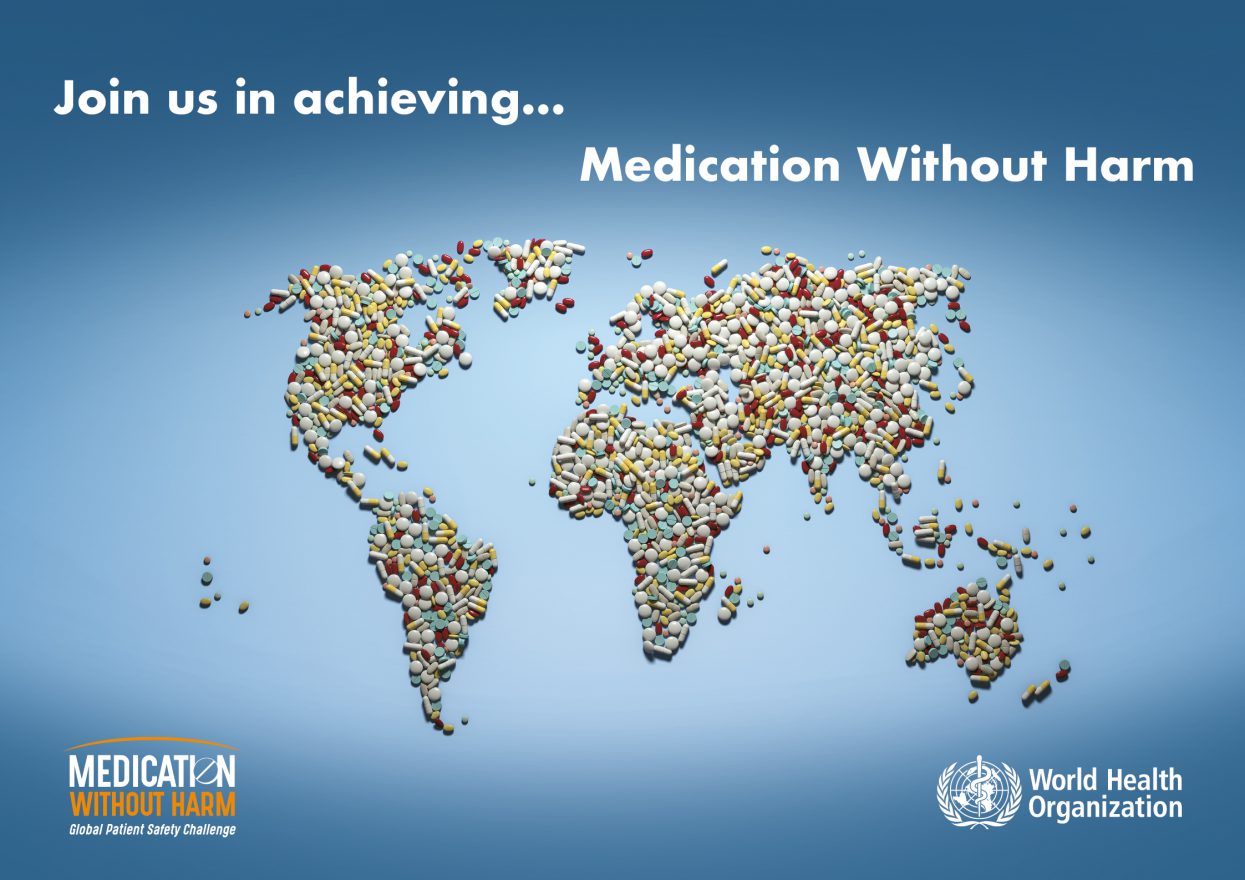In 2017 the World Health Organisation (WHO) launched the third Global Safety Challenge; Medication without harm with the goal of reducing severe avoidable medication-related harm by 50%. Today they have released three technical documents to facilitate early priority actions and planning to address this challenge. Professor Michael Scott Director of MOIC is committed to this challenge and he is a reviewer and contributor all three of the technical documents.
WHO asked countries and key stakeholders to prioritize three areas for strong commitment, early action and effective management to protect patients from harm while maximizing the benefit from medication, namely:
• medication safety in high-risk situations,
• medication safety in polypharmacy,
• medication safety in transitions of care
Medication Safety in high Risk Situations
High-risk situations are more often associated with significant harm due to unsafe medication practices or medication errors. This report outlines three main factors contributing to high-risk situations: i) medications, particularly high-risk (high-alert) medications, ii) provider/ patient factors, and iii) systems factors (work environment). One or more of these factors, acting alone or in combination may trigger unsafe medication practices or medication error.
Medication safety in polypharmacy
As the population ages more people are likely to suffer from multiple long term illness and take multiple medications. It is essential to therefore take a person-centred approach to ensure that the medications are appropriate for the individual to gain the most benefits without any harm. This reports highlights importance of leadership in nurturing a culture that priorities safety and quality of prescribing.
Medication Safety in Transitions of Care
Medication discrepancies impact almost every patient that moves across transitions of care, e.g. admission to or discharge from hospital. WHO urges countries to prioritise early and sustained action to reduce medication-related harm arising at transitions. This report outlines why improving medication safety in transitions of care is a priority and outlines what has been done to date and what needs to be done.
Speaking about the documents Professor Scott stated: “It is great to see the release of these technical documents, with the significant input from expert contributors globally, and they represent a very valuable resource in terms of meeting the challenge -and a very big thanks to the main authors”

